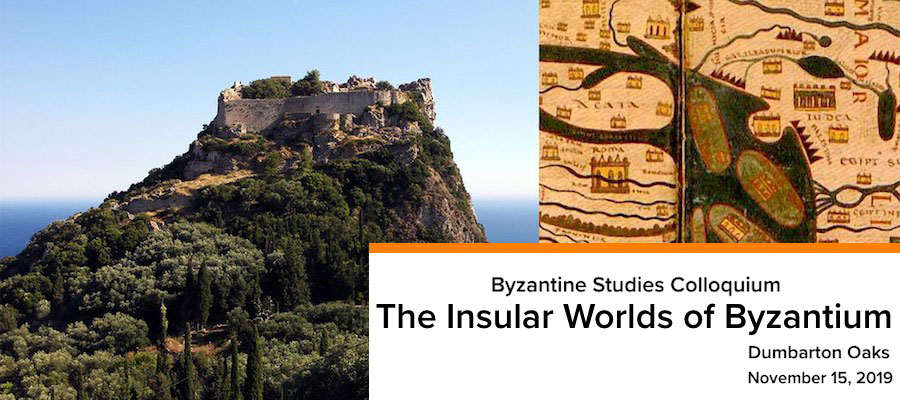The Insular Worlds of Byzantium, Dumbarton Oaks Byzantine Studies Colloquium, Dumbarton Oaks, November 15, 2019
Byzantine islands have been largely considered marginal to the dramatic political, social, and economic changes the Byzantine heartland experienced in the seventh century and at the onset of Arab expansion in the eastern Mediterranean. Major islands, such as Sicily, Sardinia, Malta, and the Balearics, were lost forever. Others, like Crete and Cyprus, remained in flux until they were briefly reclaimed by Byzantium in the tenth century before coming under Latin control during the Crusades. Contrary to the perspectives offered by written sources (Byzantine, Arab, and Western), which for the most part dismiss them as marginal spaces, places of exile, or military outposts along maritime frontiers, islands constitute the best examples of the transformative adaptability of Byzantine society during periods of volatility and transition. Instead of decline and abandonment, archaeological work and results point to the existence of active communities, local and regional economic exchanges, and cultural continuities and interconnections during the period between the seventh century and the fall of Constantinople to the Crusaders in 1204.
Speakers will address the topic of Byzantine islands through case studies viewed in their broader Mediterranean and comparative contexts. The exploration of islands as hubs where Byzantine, Islamic, and Western European cultures encountered and influenced the local political, economic, and social structures will permit new insights into the networks of island societies and their legacies. Not only were islands located along commercial shipping routes, but, as spaces of adaptive economic activities and social strategies that were molded by military and political realities, they presented unique opportunities for cultural interconnections. In this context, the “Insular Worlds of Byzantium” will provide new and revised perspectives on the Byzantine Mediterranean and beyond.
